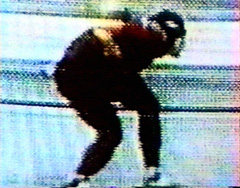Marisa Maza és una creadora d'art visual amb una àmplia trajectòria internacional que treballa en el camp del vídeo i de la fotografia. Té un Master en Belles arts de la Facultat de Belles arts de la Universitat Complutense de Madrid (1988), i ha acabat un curs de postgrau en Belles arts i Media de comunicació a la Universitat de Belles arts de Berlín amb la professora Katharina Sieverding (Hochschule der Künste Berlin, 1999).
Abans d'integrar-se a la University of Florida com "Visiting artist" (2005-2007), Maza ha ensenyat i treballat a la Facultat de Belles arts de Berlín sent el seu mentor la professora Katharina Sieverding.
Maza ha rebut nombrosos premis i beques destacant el premi per a la Producció de Video de la Karl Hofer Society (2005) la fundació de la qual va subvencionar (2003-2006) l'estudi de treball, diverses exposicions i catàlegs. L'any 2001 se li concedeix una Beca d'investigació artística del Ministeri de Cultura de Berlín. Anteriorment (1998/2000) va obtenir la beca de doctorat (NaFöG) per la Universitat de Belles arts de Berlín (O.d.k) i paral·lelament també la beca d'investigació artística concedida pel German Academic Exchange Service (DAAD) a Sud-àfrica, Tanzània i Nova York.
Des de principis dels anys 90, ha qüestionat els conceptes d'identitat juntament amb identitats polítiques, així com les seves representacions mediàtiques, culturals, socials i polítiques. De forma específica ha treballat sobre el ‘cos humà’ i tipologies de paisatges urbans ja siguin reals, ficticis o simulats, els quals són tractats com a sistemes (metafòrics) que reflecteixen les condicionis soci-polítiques (de gènere, tecnològic i antropològic).
En termes generals, Maza utilitza les formes de vídeo-instal·lació i la fotografia per fer una reflexió crítica sobre els límits dels formats de representació mediàtica, sobre les formes de producció d'imatge rellevants en la història de l'art, així com sobre la producció, distribució i recepció d'imatges produïdes pels media.
Fragments d'un text de Ulrike Kremeier directora de Centre d’art Passerelle, Brest, França

El tema principal del meu treball artístic des dels primers anys de la dècada dels noranta planteja preguntes sobre diferents conceptes d'identitat. L'eix de la meva producció gira entorn tant a la identitat política en la seva forma de representació medial, com a la cultural i social. Aquí es representen a través dels “cossos humans” o la seva representació diverses topologies del real, ficcions o / i paisatges, paisatges simulats, com, metafòricament, sistema d'inscripció de condicions socials (de gènere, tecnològic i antropològic).